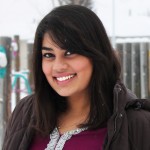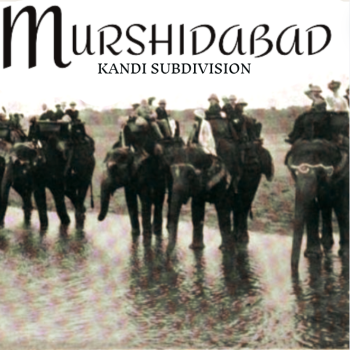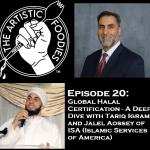“You know, you can talk to me in Bangla if it makes you more comfortable,” I said quietly. I could sense my passenger was struggling, words stumbling from his tongue.
“Oh that’s right,” he responded, slightly surprised. “I’ve been in the US a year, and I never can find people to speak in Bangla with.”
“I don’t speak it bhalou, but I can understand it ikhthu ikhthu,” I jokingly said in Banglish.
It was an unusually warm early October night in Los Angeles, and I was driving on the yellow lit streets under the bright full moon. It was late, so the route to “Little Bangladesh” was barren of cars and my little hatchback was flying down the roads.
It was the cusp of election season. Within days phone banking madness would begin with an endless string of volunteers, pizzas, electoral lists, Asian American and Pacific Islanders (AAPI) languages, late nights, and long weekends. We had just finished one of our phone bank trainings when this guy – let’s call him Alam – asked me for a ride.
I had seen him – a slight man with almond-shaped eyes and chai-colored skin – around L.A.’s progressive Muslim spaces. He was introduced to me as “being from Bangladesh, too.” He had a soft way of speaking, evenly paced, his accent just hinted at and upscale. He was new to town, visiting on a year-long fellowship conducting research on queer men and their stories.
He pulled me aside at a party, asking me to look out for a job for him. He had decided to seek asylum.
“What’s your claim?” I asked.
He said he was out now, and that if he moved back to Bangladesh he’d have to go back into the closet. It was impossible for men like him. He didn’t want to live a life like that.
We were phonebanking for the November 4th election cycle and were calling Bangladeshi voters. I asked him if he would be able to convince people to vote, in Bangla? We had a little money to offer as a stipend. I was embarrassed – our stipend barely covered transportation. It was enough for the teenagers who often volunteered for our efforts, but paltry for a 30-something man trying to survive.
He said he didn’t mind and it’d give him something to do until his asylum case was approved. I wondered how it would feel to make calls to Bangladeshis with citizenship, asking them to vote when he himself could not.
Back in the car, he seemed hopeful enough. He was excited to start making the calls. He asked me about my siblings and my age. I asked him about his. He said he had a little sister who was getting married soon; his family had delayed the wedding so they could have it when he returned. She had been engaged a year.
“What did you tell them?” I asked.
“I told them that I was trying to stay. That they should move forward with the wedding.”
“But, if you seek asylum… that means you can never go back,” I said in Banglish, realizing that I didn’t know the words for “asylum” or “gay” or “love.”
He responds in fluent Bangla. When Alam speaks, it reminds me of how a hummingbird flits and flies. “I know. But since I’ve been here, I know what I am now. I can’t go back to hiding again. Because of this project, I realized I am gay.”
“You don’t think your family suspects?”
“I don’t think so. It’s incomprehensible to people over there to even think like this. People think gays and lesbians don’t exist in Bangladesh. And if they do, they are married and lead a ‘normal’ life. Everything is secret and hidden. If I went back I would have to get married, too. If I had stayed there, there was a girl I was friends with whom I was supposed to marry. That’s how it is there.”
“But what if the asylum case doesn’t go through?”
“Then I can go to Canada. Or maybe Australia,” his voice was excited, as if he was embarking on an adventure. “It’s really hard for Bangladeshis to get citizenship in the US. So if it doesn’t work here, then I’ll keep trying someplace else.”
I pull into the parking lot of Deshi, my favorite local spot.
“Do you have time for a cup of chaa?” he asks. “Stay for at least one cup.”
I know better then to reject a cup of chaa, no matter how late in the night it is. According to our custom, you never reject chaa.
“Cholouh,” I respond. “but just akh chaa.”
+++
Whenever I was asked why I started a career in electoral politics, I used to tell this story: Homeland Security came knocking on my parents’ door three months after September 11th. They were looking for proof that my older, male cousin was American-born, but, really, they were looking to get their foot in the door to talk to my Muslim family. It was a classic McCarthyesque scare tactic in the early 2000s. I was living in DC at the time, and my mother was scared to tell me what had happened.
“I don’t want you to get mad,” she said, when she finally called me.
After she told me what had happened, she said, “It doesn’t matter how long I’ve been living in this country, or that I’m an American now. I will always feel like a second-class citizen.”
People like this story. It’s simple to understand. Nicely packaged narrative of Islamophobia, voting, immigration, and power.
I used to like this story too. Succinctly, I was able to tell people that I work in the world of politics to give power back to people like my mother. I never wanted my mother to not feel safe, to not belong.
But after she died… it was like I lost my purpose. I couldn’t tell this story without choking up and crying. I couldn’t see the purpose of working on campaigns to get out the vote and empower communities like my mother’s when she wasn’t here any more.
I have worked six electoral campaigns since my mother passed away, and every election day this existential crisis blooms. I know why I do what I do, but I also don’t know why I do what I do anymore.
+++
As I walk around our phone bank room, I hear a cascade of languages. I am proud of what I hear. We are conducting the largest phone bank operation I have ever heard of – at least in breadth of the languages we are microtargeting in. Our phonebank is in seventeen different AAPI languages and is completely volunteer driven.
When I took this job, I was committed to inclusivity and to figuring out how to best serve all the communities bundled under the “Asian American and Pacific Islander” umbrella. Southern California is the ethnic hub for many AAPI populations. It is a huge undertaking, to be able to cut 17 different lists and to recruit bilingual volunteers that speak these languages. We average about 20 volunteers a night, most of them high school and college aged kids navigating between their mother tongue and English.
As I hover over their shoulders, I hear the struggle and fear in their voices – stumbling over the script and “political” words that are foreign to them. You can tell by their tone whether they are speaking to an elder or to a youth. By now, I recognize some of the words – I hear “bumoto” from our Tagalog speaker. Our Punjabi caller starts each call with a “Sat Sri Akal, aunty/uncle” which always makes me smile. I have finally learned how to microtarget South Asian calls – it has been a decade-long personal undertaking – so that we can make calls in Arabic, Bangla, Urdu, Hindi and Punjabi.
I walk by a girl who speaks Banglish like me. Nadia is an eager hijabi teenager from the local high school. She wants to get as involved as possible, and has that need-to-get-out passion for engagement that I had at her age.
“Aapne November fourth –eh vote debhay?” she asks on the phone.
It takes me aback a little every time I catch myself understanding her bilinguality on the phones. It reminds me so much of how I speak Bangla with elders and how I try engage deferentially with other Bengalis. Her seventeen-year-old passion also reminds me of how I too used activism as a tool to get out of my parents’ house as much as possible. She’s my favorite, obviously.
Alam’s Bangla is more “bothroh.” I don’t know the exact English equivalent, but it encompasses “mannered” and “respectful.” While on the phone, he leans over the desk, concentrating hard on what the person on the phone is saying. His voice is soft, and he answers questions intently and personably. I find him on more than one occasion answering questions like “Where do you live?” or “Who do you know?”. It’s such an immigrant thing to ask, to be able to place someone in ‘home.’
I am impressed by Alam’s level of conversational skills, almost jealous at his ability to connect with Bengali strangers. It is calls like these – when someone from a shared language and culture gains the trust of the voter, answers their questions and encourages them to vote – that are more likely to turn out voters on Election Day.
After each night of phonebanking, we circle up with the volunteers to debrief. This campaign feels different – the volunteers are having fun, and they are feeling good. It’s not just about voting to them. They are using their language skills – which in their American duality they’ve often been shamed into hiding – and they are using them for good.
“You know, I’ve been coming in for a week and it’s been awkward, but tonight I feel like I finally understood what we were doing,” Alam said, at an early debrief circle. “If I hadn’t called, these people wouldn’t even know there was an election. I’m helping them and speaking to them in Bangla and making it easy for them to vote. I answer questions they have. I get it.”
It’s always a beautiful to see that lightbulb moment in someone you’ve been nurturing. At the same time, I can’t help but wonder if the people on the phone would have felt differently had they known that the man calling them was seeking asylum from Bangladesh for being gay. I wondered if they would have cared what village he was from then.
+++
A close friend came out to me over the Get-Out-the-Vote weekend. She called me out of the blue in tears and afraid, and we talked for an hour. It made me late for my phone bank, but I knew my team would understand.
I was afraid, too. Here she was, a Muslim Desi girl coming to terms with her entire being. She had been lonely and unable to connect with all the radical queer-positive Muslim spaces I had been a part of all these years. In the narrative radical Muslim spaces I was a part of, I was surrounded by people on all sorts of journeys of self-discovery. There was no need to be alone. Or scared.
I told her that I loved her, no matter what. I would keep her secret, I promised.
+++
This is a column about love, right? Radical love. Where the freedom to love intersects with the politics of being free. Love and politics are so deeply intertwined, it’s impossible to separate the two. If you’ve managed your politics to have the love completely teased out, then you are doing it wrong.
The last guy who told me that he loved me also told me that he didn’t want to be with me. He told me he didn’t vote either because he didn’t think it mattered. It was the same thing, anyways.
When I go to the polls to vote today, November 4th, I will think about Mom. I will continue to vote for her, no matter what world she may be in. I will vote for the hopeful Nadias, not yet old enough to register to vote. I will vote for the Alams, seeking asylum for the freedom to love. I will vote for the friends whose secrets I hold.
I will find purpose in others. I will find purpose in others. I will find purpose in others. Allah knows best.
It’s November 4th. Please go vote, with your love and purpose.
—
Read more columns by Taz, here.
Tanzila “Taz” Ahmed is an activist, storyteller, and politico based in Los Angeles currently working as the Voter Engagement Manager at Asian Americans Advancing Justice – Los Angeles. She was a long-time writer for Sepia Mutiny, and was published in the anthology Love, Inshallah: The Secret Love Lives of American Muslim Women and both zines from Totally Radical Muslims. Her personal projects include curating images for Mutinous Mind State and writing about Desi music at Mishthi Music where she co-produced Beats for Bangladesh: A Benefit Album in Solidarity with the Garment Workers of Rana Plaza. Taz also organizes with Bay Area Solidarity Summer and South Asians for Justice – Los Angeles. You can find her rant at @tazzystar.
















